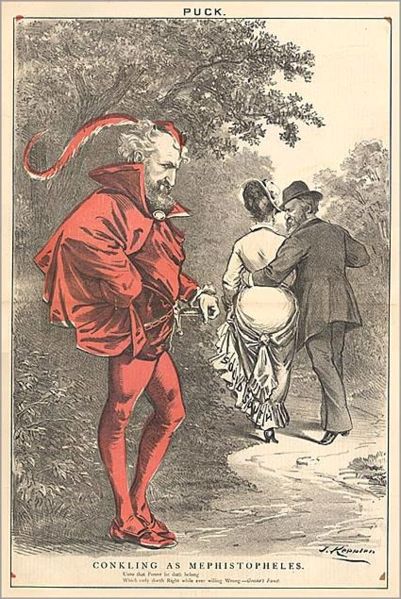If you’ve been paying attention to advertising lately, you’ve probably noticed that ads are getting a lot more personalized. This is a good thing. It means companies are spending some time thinking about their customers as individuals with specific perspectives and interests.
Seems like an obvious insight, right? After all, I haven’t met anyone who prefers to be treated like a stereotype or a generic number that is very much like other generic numbers within a statistical collective. Yet, there are still companies out there who try to sell you a product or service using Henry Ford’s old maxim: “You can have it any color you like, as long as it’s black.”
Sometimes mass-production concerns limit variation, so it’s an understandable limitation, but it’s nice, and uncorporate, when companies give you choice. Sure it may take more effort to produce choices that cater to an individual’s preferences, but it can lead to a stronger connection with the brand, and that’s rarely bad for sales. That’s why you can customize your Google homepage, buy an iPod or car that approximates your favorite color, and special-order your Dell machine to include just the components you want.
Efforts to custom-tailor advertising campaigns to the individual rather than to a broad demographic are relatively new, but the idea is slowly catching on. Let’s look at three interesting examples:
AMERICAN EXPRESS
[youtube=http://www.youtube.com/watch?v=azFDDd2rDSk]
Ever since American Express started running their “My Life. My Card” campaign, I’ve been intrigued by the number of respectable celebrities who got involved. Tina Fey, M. Night Shyamalan, Ellen DeGeneres, and Robert DeNiro are a few of the names who participated. I’m sure American Express paid them all handsomely, but even so, high-profile figures are generally concerned to some degree about the appearance of selling out.
How then did American Express land so many big names? I’m guessing part of their success came from the freedom they gave their participants to express themselves. In the above commercial notice how the people involved talk about their unique contributions to the world, their projects. There’s no corporate, generic discussion about how American Express exceeds expectations or how it puts customers first. Instead we get specific examples of interesting people sharing their passions with us in a personal way.
When I see that commercial, I don’t think, “hey look at all those sell outs.” I see new sides of people I admire, and I’m left wondering what my special contribution to this world might be and how American Express could help me share it. Not a bad message to convey, yes? I don’t know about you, but the message’s appeal to me is a big reason why I have an American Express card.
EPSON
[youtube=http://www.youtube.com/watch?v=85HYsFPhGVk]
Most of us with computers use printers to get important things done, but how often do you hear someone begging for geek cred by bragging on his printer instead of his cell phone, or stereo system, or game console? Not often I think. I definitely don’t lose sleep waiting for tech specs on the season’s upcoming printers. Epson understands this. That’s probably why they came up with epsonalities.
If you go to their site at epsonality.com you can go through several tests to find out which printer is exactly right for your personality. You don’t get thrown into a broad group based on your age, sex, or occupation, because, after all, you are an individual, and your needs and wants are different by definition from those of others, perhaps a little or perhaps a lot. Why shouldn’t that also be true about the printer you use?
The print ads and tv spots used to promote the epsonality site, like the one above, emphasize the particular ways that particular people want to use printers. Specific examples in the advertising help us imagine how we might use an Epson for our own specific purposes. And when you think about it like that, it does make printers seem more fun, almost like a beloved cell phone.
ADIDAS
[youtube=http://www.youtube.com/watch?v=zXjOZE9R4BQ]
Adidas has run a series of Impossible is Nothing ads that feature more famous people talking about their struggles. Those are interesting enough for their emphasis on the individual and his specific struggles in achieving success. The ads don’t generalize about how Adidas helps you win just like (fill in name of famous athlete here). They look at the particulars and inspire us in the process.
But, what really strikes me about the commercial above is that it celebrates a team that doesn’t achieve undisputed success. To most observers, the featured Saint Margarets team isn’t a triumphant one, but to the team itself that one goal they scored is a colossal victory.
It’s such a great, uncorporate thing that Adidas is willing to rejoice even with a team that loses the game but still achieves something unprecedented. We can’t all win the big games, but we can all aim to do our very best as we play with our own unique skills and perspectives, and Adidas salutes us for that. That’s a pretty compelling reason to buy Adidas stuff, don’t you think?
Remember these ads when dealing with friends and employees and clients. No one wants to be treated like just another number, but treating someone like an individual takes time and effort. It means taking an interest in someone, not for the sake of getting the sale but for the sake of a appreciating a fellow human being created in the image of God, just like you and me. It means taking the time to understand what motivates, intrigues, and repulses a person and spending more time adapting a specific approach to him or her.
You do it, to some extent, when you’re trying to sell to someone, so why not do it for the rest of the people in your life? It is, after all, your chance and mine to make the world just a little less corporate.

